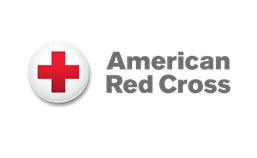As we all deal with the challenging demands of the COVID-19 virus outbreak, the June 1 start of hurricane season is coming, and it’s important to get prepared. Because of COVID-19, getting prepared will look a little different than in other years. With that thinking in mind, the South Florida Red Cross has tips to help.
“Disasters won’t stop, even during a pandemic,” said Joanne Nowlin, CEO of the South Florida Red Cross. “Before the hurricane season starts on June 1, make your preparations now and consider the coronavirus situation as you do. Early reports are predicting a busy year with as many as four storms reaching major hurricane strength. Let’s do our part and be prepared for any type of emergency or disaster that may come our way.
MAKE A PLAN — In light of the virus, you may have to adjust any previous plans you made.
- If authorities advise you to evacuate, be prepared to leave immediately with your evacuation kit (see below).
- Plan now if you will need help leaving or if you need to share transportation.
- Ask friends or relatives outside your area if you are able to stay with them. Check and see if they have symptoms of COVID-19 or have people in their home at higher risk for serious illness. If they have symptoms or people at higher risk in their home, make other arrangements. Check with hotels, motels and campgrounds to see if they are open. Find out if your local emergency management agency has adapted its sheltering plans.
- Check with the Centers for Disease Control (CDC) and update emergency plans due to the virus.
- Plan ahead for your pets. Keep a phone list of pet-friendly hotels/motels and animal shelters that are along your evacuation routes. Remember, if it’s not safe for you to stay home, it’s not safe for your pets either.
BUILD A KIT — Assemble two kits of emergency supplies and a one-month supply of prescription medication. Some supplies may be hard to get, and availability will worsen in a disaster, so start gathering supplies now. Start with this basic supply list:
- Stay-at-home kit: Include everything you need to stay at home for at least two weeks, with items such as food, water, household cleaning and disinfectant supplies, soap, paper products and personal hygiene items.
- Evacuation kit: Your second kit should be a lightweight, smaller version that you can take with you if you must leave your home quickly. Include everything you need to be on your own for three days:
- Food and water
- Personal hygiene items
- Cleaning and disinfectant supplies that you can use on the go (tissues, hand sanitizer with 60 percent alcohol and disinfecting wipes)
- Cloth face coverings for everyone in your household who can wear one safely. Cloth face coverings are not a substitute for physical distancing. Continue to keep about 6 feet between yourself and others in public. Cloth face coverings should not be placed on young children under age 2, anyone who has trouble breathing or is unable to remove it without help.
- Infant formula, bottles, diapers, wipes and diaper rash cream
- Pet food and extra water for your pet
- Cash or traveler’s checks
- Important family documents such as copies of insurance policies, identification and bank account records saved electronically or in a waterproof, portable container
- 1-month supply of prescription medication, as well as over-the-counter medications like cough suppressants and fever reducing drugs and medical supplies or equipment. Keep these items together in a separate container so you can take them with you if you have to evacuate.
BE INFORMED — Have access to weather alerts and community notifications. Be sure that you can receive official notifications even during a power outage. Always follow the directions of your state and local authorities.
- Use the Red Cross interactive map to identify likely disasters in your area.
- Learn about your community’s response plan for each disaster and determine if these plans have been adapted because of COVID-19.
- Find contact information for state, local and tribal governments and agencies, and for state emergency management agencies.
- Because of COVID-19, stay current on advice and restrictions from your state and local public health authorities as it may affect your actions and available resources and facilities.
Take a First Aid and CPR/Course online to learn what to do in case emergency help is delayed. Download the Red Cross Emergency App for instant access to weather alerts for your area and where loved ones live. Expert medical guidance and a hospital locator are included in the app in case travelers encounter any mishaps. These apps are available to download for free in app stores or at www.redcross.org/apps.
Visit www.redcross.org/hurricane for full information about what to do before, during and after a hurricane.








